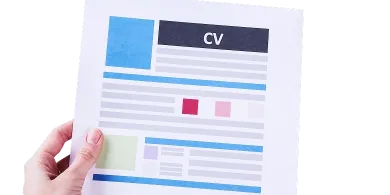Table of contents
 Destroying your well-written resume with a terrible cover letter makes your candidacy very doubtful to the employer. Even though many of HR managers neglect reading cover letters of their candidates, some of them do; so if you didn’t do a great job with writing a good letter, your whole job application could easily get into a trash bin.
Destroying your well-written resume with a terrible cover letter makes your candidacy very doubtful to the employer. Even though many of HR managers neglect reading cover letters of their candidates, some of them do; so if you didn’t do a great job with writing a good letter, your whole job application could easily get into a trash bin.
But here’s a thing: if you have no idea what a cover letter is and what it is for, better look for a professional cover letter writer (from Resume Writing Lab) and then come back to the actual topic. In the meantime, let us find out the top 10 mistakes that would contribute to your elimination.
Once again, your cover letter can be simply ignored by the recruiter, but there are some, who pay quite much attention to them. Therefore, you must include the letter anyway.
Students tend to forget about the strictness of business letter formats, missing essential letter parts, such as recipient information, return addresses, dates, etc. Make sure your cover letter looks professional and standardized.
Addressing your cover letter to an unspecific person using forms like “Dear HR Director” or “Dear Sir or Madam” isn’t something your employer would be pleased with. On the contrary, this action demonstrates your lazy approach and your disinterest even for finding out the name of the person who hiring you (or not).
After all, you got all the sources of information that you could use for your benefit: for instance, the Internet, contacts of the company and phone books to track down names of your possible recruiters. Just take another 5-10 minutes and research.
Let’s be honest: your HR manager has no interest in how much profit you’ll receive from the job—on the contrary, he wants to know which way your qualifications meet the employer’s needs. Especially, that relates to job applicants applying for senior positions (check out tips for writing executive resumes). Be specific and explain how you might enrich the particular business.
Common clichés like “Enclosed, please find my resume” or “As you can see on my resume enclosed herewith.” are very frustrating to almost each recruiter; after all, it’s just matter-of-course. Instead of being obvious and boring, use the first paragraph to catch the manager’s attention so that he would get interested in knowing you better.
 Typical grammar, spelling errors or even small typos present in your cover letter can ruin the employer’s impression and expectations regarding your erudition and literacy. After all, there’s no prestigious company that’d like to hire a person with poor grammar or the one who isn’t quite attentive and doesn’t bother reviewing his or her documents. Therefore, proofread the letter very carefully.
Typical grammar, spelling errors or even small typos present in your cover letter can ruin the employer’s impression and expectations regarding your erudition and literacy. After all, there’s no prestigious company that’d like to hire a person with poor grammar or the one who isn’t quite attentive and doesn’t bother reviewing his or her documents. Therefore, proofread the letter very carefully.
It’s easy to select right words that sound tempting and professional; for instance “have deep IT knowledge” or “possess excellent communication skills”. Nevertheless, for the employer, these are just empty words if there was no evidence followed afterwards. Give examples for each written claim, because they need proof.

Don’t waste time on things that have been already mentioned in your resume, but you simply want to add them to your cover letter. Yes, you can highlight something really valuable from it, although there’s no need to make a resume duplicate out of the letter.
Just remember: it’s not a novel, where the author has the freedom to make long-page descriptions of the characters’ lives and so on. A professional cover letter is no longer than a single page. Believe us: HR managers wouldn’t bother spending more than 1-2 minutes for both applicant’s resumes and cover letter, which means you have to be concise and convincing. Like they say: brevity is the soul of wit.
Making one-size-fits-all letters won’t guarantee any success because professional recruiters know how to identify those easily. Consequently, they may not even consider your candidacy anymore. Address to each company personally, use specifics and then you will definitely stay on track.